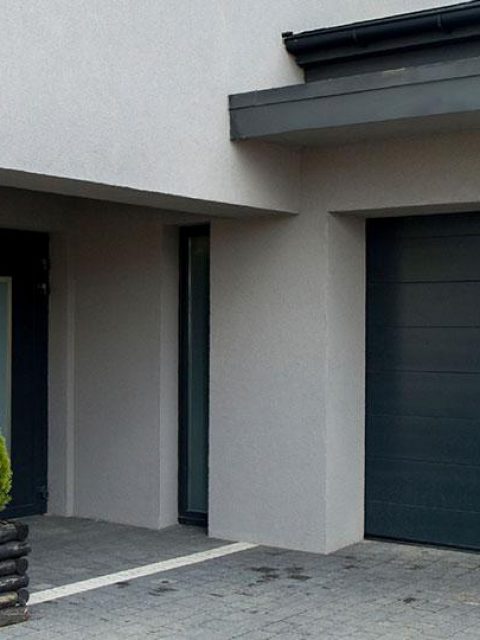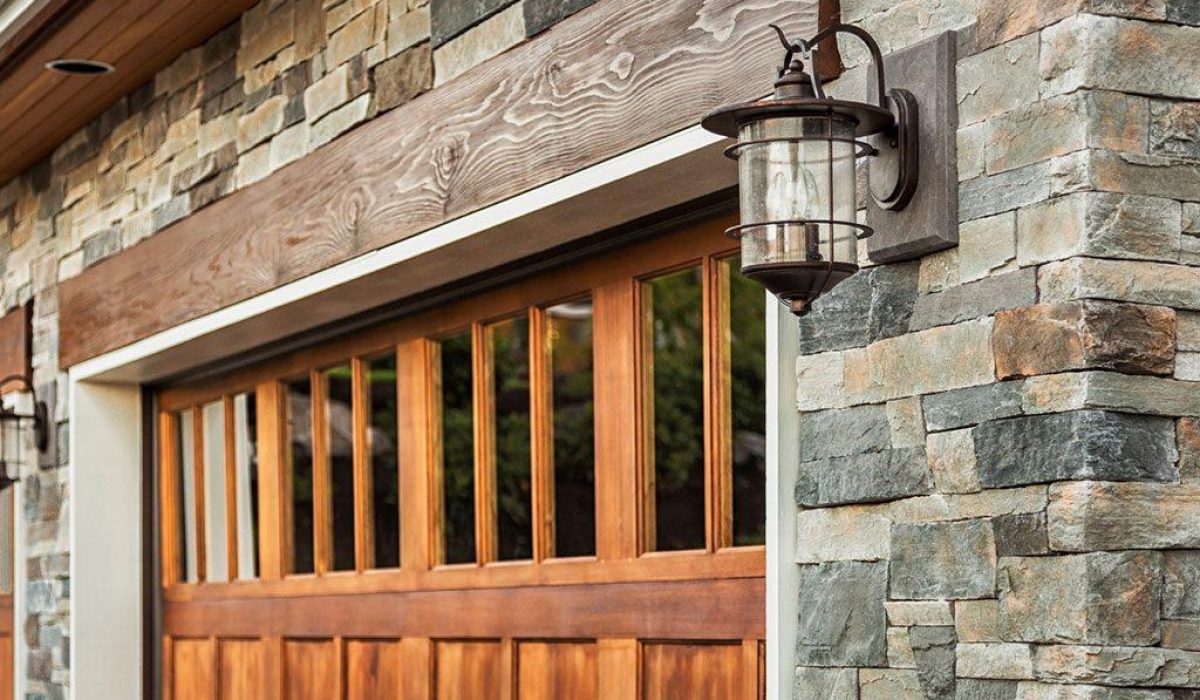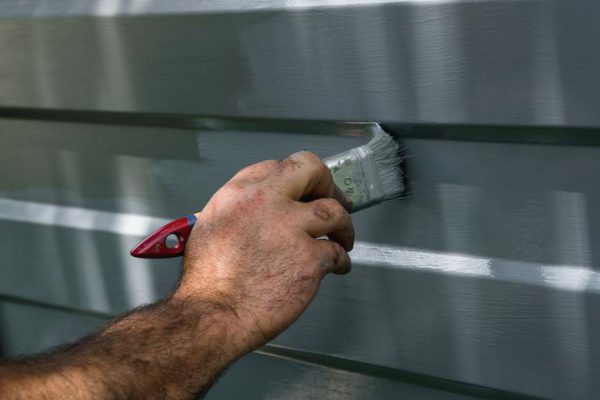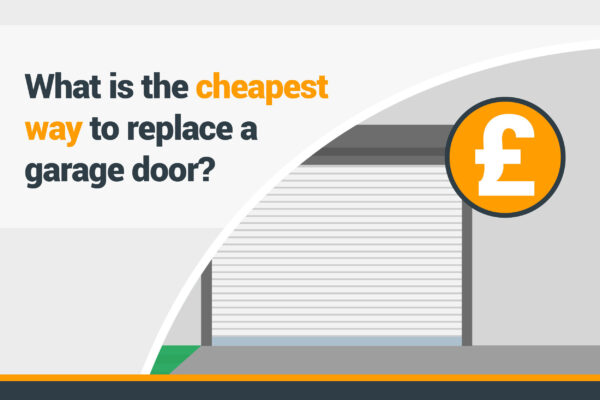Insulated Garage Doors: The Best Garage Doors For Insulation & Energy Efficiency
Garages are generally purpose-built rooms, used to shelter vehicles and to store surplus goods, but what if you had the flexibility to change your garage into a habitable room? Perhaps you have one less car to shelter or recently had a clear out, and wish to turn this space into a gym or a games room – by having an insulated garage door, you will be able to do this with ease. As garage doors without insulation can make for very cold and uninhabitable rooms, read on to find out the multiple benefits of insulated garage doors and types of garage doors that can be installed.
The importance and benefits of insulated garage doors
- Energy efficient: Insulated garage doors will keep the warmth in during the winter and the heat out in summer. This means that your garage will maintain a moderate temperature, meaning you could save money on your energy bills as you’d use your heating less. Keeping a comfortable climate will make your garage more inviting to use and therefore, will become a more useful extension of your home.
- Absorbs sound: Having insulation will dampen noise coming from both outside and inside your garage. Should your neighbour begin their usual early morning lawn mowing or should you have music on loud – the noise will be absorbed and neither party will be impacted. Insulation will also make for quieter garage door operation too. Adequate insulation will strengthen the door and reduce unsettling rattles and creaks. That said, if you do notice strange mechanical noises, it’s important to have a professional check it over to ensure the essential parts aren’t broken.
- Stronger doors: Insulated garage doors have increased strength, compared to those that aren’t insulated. With more resistance to dents and damages, insulated garage doors are longer lasting and are better suited to the changing elements such as wind, rain and sun – which otherwise, can shorten the lifespan.
- Comfortable living: With a pleasant temperature inside your garage, it’ll become a well-used room that feels part of your home – ideal if you have an attached garage.
- Lower energy costs: You’re likely to see a significant difference in your energy bills.
- Practical garage space: With an insulated garage, the inside environment is likely to be over 20 degrees warmer than the external temperature.
- Three times quieter: Reducing noise by up to 16 decibels, insulated garage doors are helpful if you have other occupants’ bedrooms next to your garage.
- Enhanced curb appeal: With insulated garage doors, you have more of a variety to choose from including, colour, style and material. All of these things can help you to tailor the ideal garage door, perfectly suited to your home’s exterior.
Types of garage door insulation include:
- Fiberglass Batt Insulation
- Rigid Foam Insulation
- Spray Foam Insulation
- Cellulose Insulation
Which garage doors are best for insulation and energy efficiency?
Some materials are naturally more insulating than others, so here’s a list explaining what to expect from certain types of garage doors.
- Up and over garage doors: Unfortunately, up and over doors can’t be partially opened like a side-hinged garage door and therefore, when opened, all heat escapes and cold air enters. This might be pleasant on a warm day but on a cold day, you may wish for an alternative entrance.
- Timber garage doors: Thick wood is always beneficial, as it provides adequate insulation on its own.
- GRP garage doors: Glass reinforced polyester is a naturally insulating material and makes for a strong garage door. This material will not warp or rust, it’s extremely low maintenance.
- Roller garage doors: Due to the operation of a roller garage door, they are typically 19mm thick, which is quite thin but necessary for swift movement. That said, insulated slats and rubber or brush weather seals can enhance the insulation of a roller door.
- Steel garage doors: Although there are many benefits to this type of garage door, they have incredibly poor insulation but this can be solved with added insulation.
Adding insulation to your garage door
- Seal the gaps: Seal around windows, doors, piping, electrical sockets and vents to ensure air isn’t escaping/entering your garage. Check to make sure your garage door has weather stripping too, this is applied at the very bottom of the door to prevent draughts. If it has deteriorated, replace it with a new one.
- Invest in small heaters: Provide immediate heat, ideal if you’re in there for a short while, whilst you’re sorting out the laundry or tidying up. You must be careful though, they are a fire hazard around sawdust and chemicals – important to bear in mind if you’re doing any DIY work or storing cleaning/oil based products.
- Insulate your current garage door: The reason we have garage doors is to prevent intruders and theft, not because they keep a garage warm. That said, you can add insulation to your current garage door to make your garage a more comfortable temperature.
- Purchase a new, insulated garage door: If your garage is still painfully cold, invest in a garage door, not only will it provide you with greater warmth but offer it will also offer a more secure, and stylish solution.
If you’re unsure about the insulation inside your garage, speak with a local professional who will be able to offer advice or provide you with the perfect solution. Sometimes DIY can go wrong, so unless you know exactly what you’re doing, it’s best to speak with an expert for optimal results – this way you’ll never compromise the door’s mechanisms.
With over 20 years of experience within the industry and hundreds of garage doors to choose from, you can trust in us to provide you with a garage door that’ll suit your exact taste, style and budget. Doormatic Garage Doors provide free home visits at a time that suits you, so call and get scheduled in today – we’re always happy to help. Serving customers throughout Guilford, Chalfont St. Peter, Kent, Devon and all surrounding areas.

About Doormatic Garage Doors
Doormatic Garage Doors is a well-established independent supplier of garage doors based in Guildford, Surrey and Chalfont St Peter, Buckinghamshire.





